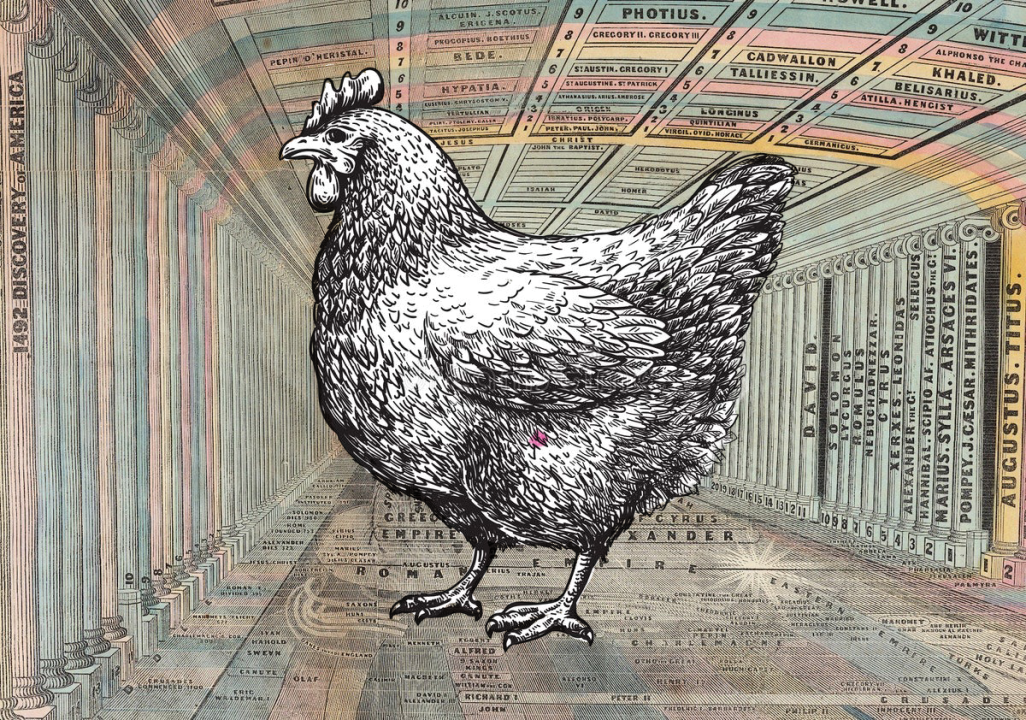
Effective Altruism: Saving Chickens, Saving Humanity
Members of a movement called Effective Altruism ("EA") fight for chicken welfare. A lawsuit they filed alleges, "Chickens used by Costco are bred to grow so fast that many of them can't stand under their weight."
Why save chickens?
Factory farming pollutes our planet. A Food and Agriculture Organization report estimates that animal agriculture accounts for 14.5 percent of all human-induced emissions.
Fighting factory farming is also an underfunded issue. "Around 97% of philanthropic funding in the US goes towards helping humans," a page on EA's website explains. "Even within the funding spent on animal welfare, only 1% goes towards farmed animals."
In other words, with a relatively small investment, we can stop the problems that factory farming causes for future generations.
Why care about future people?
In a New York Times essay, EA founder Will MacAskill argues, "[We stand at a time] marked by thousands of nuclear warheads standing ready to fire. A time when we are rapidly burning fossil fuels, producing pollution that might last hundreds of thousands of years. A time when we can see catastrophes on the horizon — from engineered viruses to A.I.-enabled totalitarianism."
MacAskill's colleague, Toby Orb, calculates we have a 16% chance of existential collapse this century. That number includes a 10% chance that robots will kill us, a 4% chance that artificial pandemics will destroy humanity and about a 1.5% that nukes will wipe us out.
The world is on fire.
While a 16% chance of humanity's destruction is scary, people are dying today. The OECD reported that almost 3 million people died of preventable diseases in 2017.
A leading preventable cause of death is Malaria. We prevent Malaria with cheap interventions like mosquito nets. GiveWell estimates that $4500 can buy enough nets to save a life.
We can also save lives by giving our time to impactful causes. How Paul Farmer spent his life inspires me most. Farmer launched Partners in Health ("PIH") with almost no money in 1987. From a small clinic in rural Haiti, PIH has grown into a leading Public Health organization. They have performed 2.8 million outpatient visits, 2.1 million women's health checkups, and 2.1 million home visits. Imagine how much suffering Paul Farmer prevented.
You can save the world too.
You need not be a doctor or billionaire to save the world. You can make a small donation to GiveWell. You can also speak up for causes you believe in. What is more impactful than buying mosquito nets that save lives? Perhaps your idea can save humanity?
Share your ideas!
Every Sunday at 11:11 AM CST, a group of effective altruists and I pitch impactful projects. Some members have raised thousands of dollars for charities including The Prison Journalism Project, The Lousiana Center for Children's Rights, and GiveWell. Other members are working on AI Ethics and have designed plays that combat child sex trafficking (see Jane Doe in Wonderland).
I invite you to share your ideas. Please email me (blake@philosophers.group) for more information. Together, we can save lives today while saving humanity's future.

Founder, Legal Impact for Chickens
11moHi Blake! I just, very belatedly, found this amazing post! Thank you so much for mentioning the Costco lawsuit!!! ❤️🐥⚖️